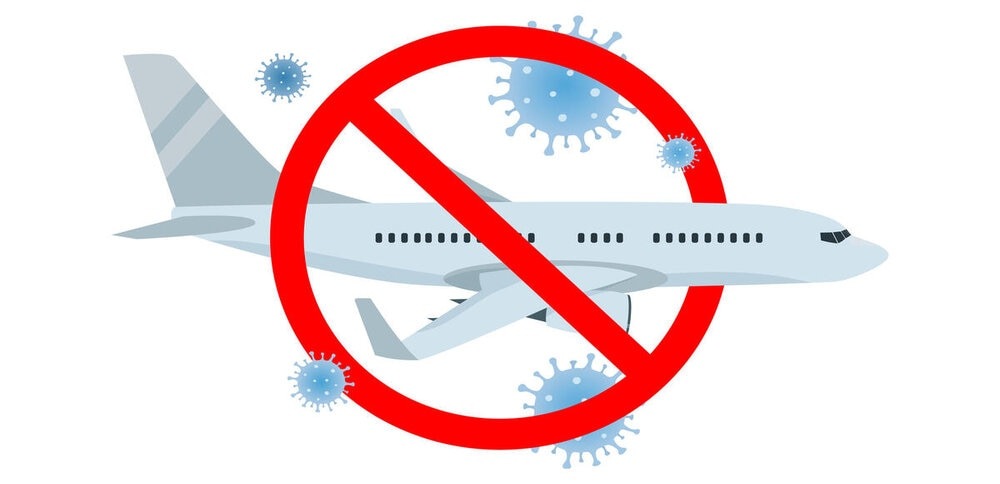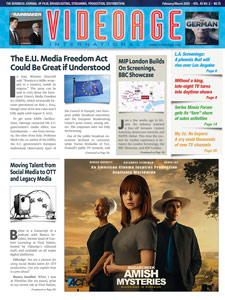By Dom Serafini
The international film and TV sectors are getting ready for several U.S.-based trade shows in the upcoming months. However, because of current U.S. travel bans due to the pandemic, only citizens from a handful of countries will be allowed to enter the U.S. These countries, which include Brunei and Andorra, are, according to the U.S. State Department, not considered a health risk by the U.S.’s CDC, the U.S. agency for disease control. But that still doesn’t make them primary prospects for show organizers.
There are, of course, some countries not affected by the U.S. travel ban — including Chile, Japan, Taiwan, Australia, and New Zealand — that are highly sought, but residents of the majority of top prospects are still not allowed to freely enter the U.S. These include the 26 countries from the Schengen area, plus the U.K., Brazil, and Ireland (in addition to China, Iran, South Africa, and India).
In March of last year, the U.S. imposed a travel ban on some countries considered a health risk in order to reduce the chance of transmission of COVID-19 in the U.S. The ban included citizens from Italy, Spain, France, Germany, and the other 22 countries in the Schengen travel area.
After 19 months this ban and not been lifted, even though most of the E.U. countries are no longer problematic, and even present a much lower risk than some U.S. states like Tennessee (87 infected per 100,000 people and 41.5 percent vaccinated) and Florida (53 infected per 100,000 with 52.6 percent vaccinated).
Instead of updating the list or lifting the ban altogether, the U.S. government has decided to put a Band-Aid on the travel ban with the so-called National Interest Exception (NIE) program for some of the 39 countries in the Visa Waiver Program (VWP). Folks in those countries don’t need visas for short visits to the U.S. Countries in the VWP include some of those sought after by market organizers. But people from such VWP countries as Italy, France, and Germany cannot enter the U.S. without an NIE authorization, which is given only to a few categories of travelers, such as journalists, students, government officials, academics, and researchers. The NIE excludes, for example, Italians and other Europeans who would like to go to the U.S. for conferences and fairs even if fully vaccinated and tested.
To obtain the NIE authorization, citizens in the VWP must go to their local American embassies or consulates to request it and it is issued at the discretion of the consular officer.
The alternative to the NIE authorization for banned VWP countries would be to spend 14 days in one of the countries outside the “travel ban,” such as Mexico, the Caribbean, or Japan (in addition to Brunei, Andorra, Taiwan, Chile, and Slovakia) and take a COVID test 72 hours before boarding for the U.S.
To meet this requirement some Europeans go to Turkey for 14 days, and are then able to enter the U.S. since Turkey is not on the banned list even though the country is not in the VWP and has a high rate of coronavirus infections (157 per 100,000 people with 55.7 percent vaccinated).
To understand the absurdity of the NIE for Italy and Germany, for example, let’s compare them to some of the countries outside the “travel ban.” With 75 infected per 100,000 people and 64 percent of the population vaccinated, Italy is at less risk than Japan (129 infected per 100,000 and 50 percent vaccinated), Mexico (87 infected per 100,000 and 33 percent vaccinated), and Brunei (232 infected per 100,000 and 33 percent vaccinated).
Among the countries outside the “travel ban” that really present less risk than Italy are: Chile (with 21 infected per 100,000 people and 75.5 percent vaccinated), and Canada (with 51 infected per 100,000 and 71 percent vaccinated).
However, there are some countries in Europe that still present some risk, like the U.K. (354 infected per 100,000 people and 67.7 percent vaccinated), Ireland (258 per 100,000 and 68.5 percent vaccinated), France (196 infected per 100,000 and 64.1 percent vaccinated), and Spain (130 infected per 100,000 and 69.1 percent vaccinated). This data, which was obtained from Reuters, is current as of August 29, 2021, and covers the previous seven days.












Great article Dom.